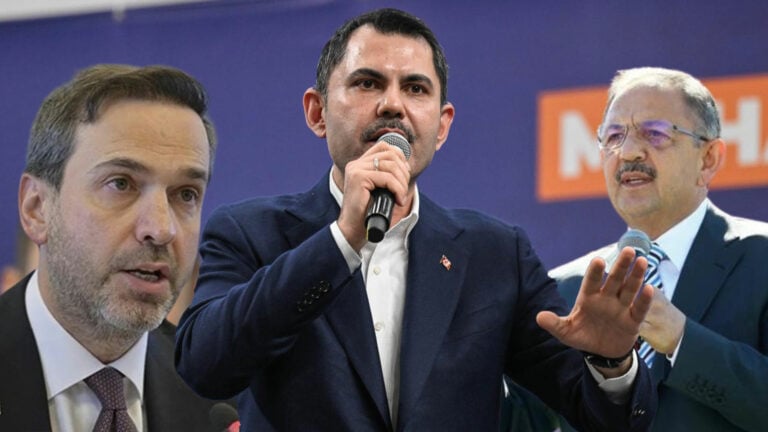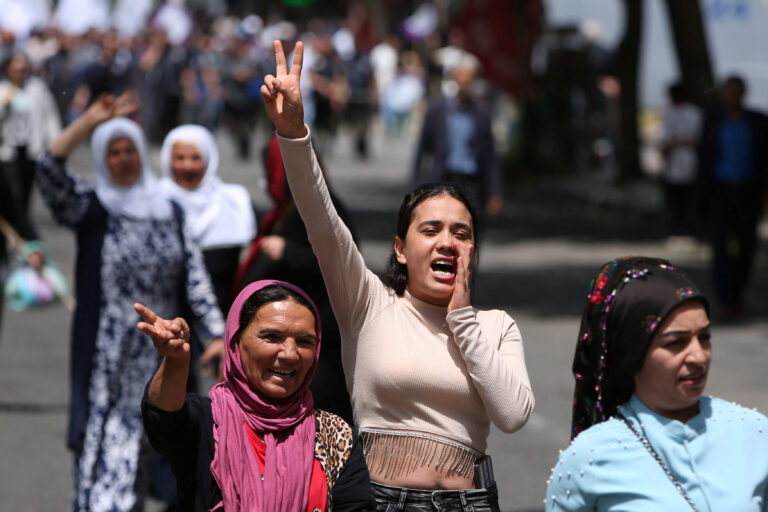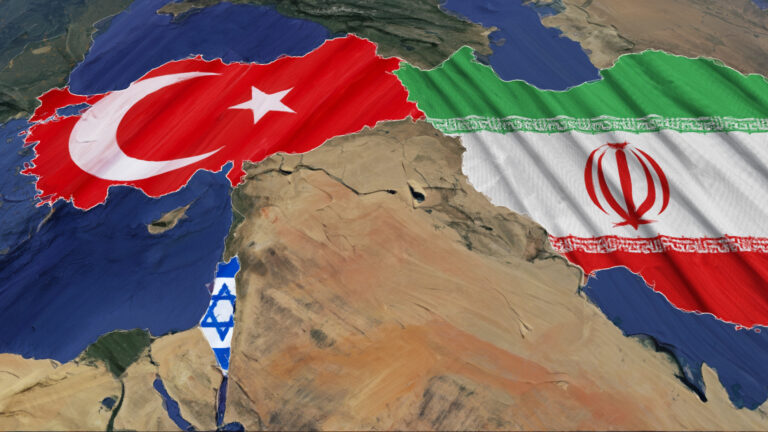On a recent trip to the Black Sea province of Zonguldak, Medyascope correspondent Ibrahim Yayan spoke with locals, including miners, about the area’s coal mining industry. While providing Zonguldak with a large number of jobs, the industry has also come under fire for its unsafe working conditions, with worker deaths resulting from explosions or mine collapses periodically appearing in local or domestic news. Medyascope’s reporting in Zonguldak reveals not only the lethality of the province’s coal mines, but also the manner in which many illegal coal mining operations work either in cooperation with — or with the tacit approval of — government subcontractors and local officials.
An explosion on November 6, 2022 in the Zonguldak district of Kilimli resulted in the injury of four workers, two seriously. This incident inspired Medyascope’s trip to the area, which aimed to uncover the relationship between the private mines in the city, illegal mines, and their cooperation with the Turkish Hard Coal Authority (TTK). Yayan spoke with one of those injured in the November 6 incident, referred to here as Enes, a 29-year-old who characterized the mines as an open air prison for workers. Enes, a father of three who had previously worked in a bakery, described his first experience working in an illegal mine:
“The illegal mining quarry was in Kırat. I had never held a pickaxe or a shovel before. When I first entered the furnace, I felt only fear. Already on the first day, there had already been a landslide in the mine. One of the inclined shafts caved in. I was under the rubble for 3.5 hours. I was under the rubble with my master. Neither the ambulance nor the rescue teams were notified. We went out on our own because it was an illegal mine, otherwise we might not have been able to get out. While I was under the rubble I thought only of death, nothing else. After I came out, I took a breather for 15-20 minutes. Then they pressured me to continue working despite the accident.”
Despite the inherent dangers, the 300 TL daily wage Enes received for the work was high compared to his bakery job, which had paid only 4250 TL per month. Nevertheless, the traumatizing incident led Enes to leave the job at this illegal mine after only one month, where he was unpaid for his last week of work.
The number of illegal mine workers is unknown
The consensus from sources whom we spoke with about illegal mining in Zonguldak is that the state turns a blind eye to these operations. Illegal mining has nearly turned into an industry in Zonguldak. It is not known how many people work in these quarries, but some experts estimate the number to be close to 4000. The city’s increase in population and potential increase in unemployment in the event of closure is one of the primary obstacles to government interference in these quarries.
According to Mustafa Özdemir, owner of Halkın Sesi newspaper, state administrators cannot create an alternative sector here and cannot afford the consequences of social conflicts that will arise should the illegal mines be shut down
Alaattin Kurnaz, the owner of Akkurt Mining, who has been working under TKK’s tender for 20 years, says that he has reported 15 illegal mines in the area. Kurnaz draws attention to the cooperation of official tender contractors and illegal mining operators. Referring to illegal mine operators, an official from TTK said, “They have now formed their own separate republic,” continuing:
“Official contractors may be doing business with illegal mining operators in their areas.”
“Illegal mining increased through cooperation with official contractors”
This connection between official contractors and illegal mining enterprises was voiced by many sources.
Medyascope'un haftalık e-bülteni
Andaç'a abone olun
Editörlerimizin derlediği öngörüler, analizler, Türkiye’yi ve dünyayı şekillendiren haberler, Medyascope’un e-bülteni Andaç‘la her çarşamba mail kutunuzda.
According to Ayhan Yüksel, Chairman of the Union of Chambers of Turkish Engineers and Architects (TMMOB), Chamber of Mining Engineers, one of the reasons for the increase in illegal mines is Zonguldak’s location in an area rich in coal wealth:
“A study was done in the early 2000s. According to this study, there were 170 illegal quarries in the Zonguldak area. It showed that about a thousand people worked in these quarries at that time. Coal production here is also very high. Illegal mining increased with the increase of official contracting. Many private mine owners became rich with these changes. As coal-related offences went unprosecuted, prison terms did not occur and illegal quarrying increased even more. I don’t know their number right now. Unfortunately, illegal quarries have been recognized as a sector by the state.”
To what extent has the government turned a blind eye to illegal mining operations?
A retired mining employee Ahmet Öztürk, who worked for TKK for 31 years, said the following regarding government complicity in illegal mining:
“I heard it from the mouths of the highest level executives of the state in the meetings held here. They say that closing illegal mines and rendering them inoperable will cause social problems in the city, and that what is happening here should be approached in a different way.”
Lack of adherence to basic safety measures
Enes said the following about how basic safety measures are ignored in the illegal mines:
“We were smoking cigarettes in the mine, the boss too. There’s no form of inspection in these mines anyway. There were alcohol and drug users down there too. I had no training before starting work. We didn’t wear our helmets most of the time. They probably intended the helmet to hold the lamp on the head anyway. We didn’t have gas meters, we didn’t have protective clothing. There was nothing. We only had a portable lamp so that we could see ahead.”
The lawless world of illegal mining
Medyascope’s conversations with illegal mine workers and locals in Zonguldak revealed the shadowy underworld of illegal mining, in which workers’ are frequently disregarded. One worker noted the significant pay cuts given to workers who miss their shifts:
“The pay cuts were huge. One day I didn’t go to work, and they cut three days worth of wages from my paycheck. Instead of earning 10,500 Lira, I received 6,500…In order to avoid paying us money they have made up this type of system. From the other workers I spoke to I never heard of anyone receiving their full check.”
Others in Zonguldak described the illegal mine operators as often involved in other illicit endeavors such as drug-related business and offering predatory, off-the-record loans. One expert who asked to remain anonymous described an episode in which a government authority went to try to shut down one of the illegal mines, only to be threatened and kicked out by the mine’s operator.
Official figures show an increase in mining casualties
Numbers released by Turkey’s Department of Social Security (SGK) show an increase in injuries and deaths related to mining accidents over the past three years. While reported injuries increased from 14,100 in 2019 to 16,999 in 2021, miner deaths saw an increase from 48 in 2019 to 75 in 2021. These numbers, however, reflect only insured workers, likely missing the vast majority of miners working in illicit operations.
Having endured three mining accidents in the space of 13 months, Enes nevertheless described his return to the mining business as highly likely. Although suffering from chronic pain due to third- and fourth-degree burns resulting from these accidents, Enes said his family depends on the work to make ends meet:
“My fourth child is on the way. In order for my family to get by, I must return to the mines.”
Mining industry threatened by competition from imports
Alaattin Kurnaz, owner of Akkurt Mining, who said his company has recorded zero deaths in their mines, cited the competition from cheaper imported coal as a significant threat to Zonguldak’s mining industry. According to Kurnaz, some 90% of the coal consumed in the region is imported. When domestic supplies are used, they are often purchased at the previous year’s prices, a death wish for companies in a country with chronic runaway inflation. Regarding the long-term prospects for the area’s biggest industry, Kurnaz said:
“If the government fails to change their policies, it will mean the end of mining in Zonguldak.”
The original of the article appeared on January 17, 2023 on Medyascope. Edited for Medyascope English by Leo Kendrick.















